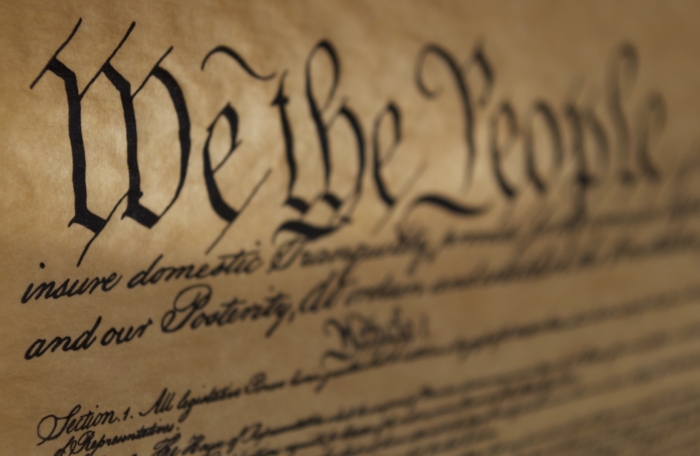Josiah Bartlett (the original) urges spirit of goodwill
I have nothing further to recommend at this time but the cultivation of a Spirit of Unanimity and Harmony, of Candor and liberality of Sentiments among ourselves and the people at large, that while (as I trust) we are all aiming to promote the general welfare, the different Sentiments that may be Entertained of the best mode to be adopted for accomplishing that desirable End, may not interrupt that Harmony and Goodwill that is so essentially necessary to the Happiness of all Public Societies.
— President (of New Hampshire) Josiah Bartlett, to New Hampshire General Court, June 3, 1791
Josiah Bartlett was a committed Patriot and an enthusiastic political scrapper. No one would call the bold and opinionated Bartlett a squish. His passion for liberty was so revered that he was made chief justice of the state Supreme Court despite having no legal training (he was a doctor).
He had been a captain of militia, a member of the Continental Congress, a signer of the Declaration of Independence, and president of New Hampshire (the term for governor before 1792). His bona fides as an ideological fighter were about as solid as they come.
And yet, once New Hampshire had its own republican form of government, he urged “the cultivation of a Spirit of Unanimity and Harmony, of Candor and liberality of Sentiments” among politicians and the people.
Like so many other Founders, Bartlett understood the seductive power of factions — and the danger that factions posed to the young republic.
George Washington warned future Americans of them in his Farewell Address:
The alternate domination of one faction over another, sharpened by the spirit of revenge natural to party dissension, which in different ages and countries has perpetrated the most horrid enormities, is itself a frightful despotism. But this leads at length to a more formal and permanent despotism. The disorders and miseries which result gradually incline the minds of men to seek security and repose in the absolute power of an individual, and sooner or later the chief of some prevailing faction, more able or more fortunate than his competitors, turns this disposition to the purposes of his own elevation on the ruins of public liberty.
At this point in American history, we have a serious faction problem. Political partisanship is driving Americans so far apart that most members of both major parties believe their political opponents are not just wrong, but immoral, a recent Pew poll has found:
Perhaps the most striking change is the extent to which partisans view those in the opposing party as immoral. In 2016, about half of Republicans (47%) and slightly more than a third of Democrats (35%) said those in the other party were a lot or somewhat more immoral than other Americans. Today, 72% of Republicans regard Democrats as more immoral, and 63% of Democrats say the same about Republicans.
The pattern is similar with other negative partisan stereotypes: 72% of Republicans and 64% of Democrats say people in the opposing party are more dishonest than other Americans. Fewer than half in each party said this six years ago. Large majorities in both parties also describe those in the other party as more closed-minded than other Americans (83% of Democrats and 69% of Republicans say this), and this sentiment also has increased in recent years.
The Framers of the Constitution (and of the state constitutions) gave us a system of government in which factions are cooled by putting them in a big room together where everyone expects them to solve their problems by talking.
But factionalism is derailing those conversations.
How do you treat with goodwill political opponents you (or your voters) assume are evil merely because of their party affiliation?
Madison called factionalism “this dangerous vice.” He thought the Constitution’s structure would curb it. He couldn’t have anticipated the rise of social media, celebrity culture and other factors that have worked to counter the incentive structure he created.
Like Madison, Josiah Bartlett worried about the pull of faction. That’s why he encouraged legislators to dispense with factional thoughts when entering into their public work. His wish was not to have absolutely unanimity of thought, or even general agreement on issues. It was simply that our political disagreements be guided by a spirit of goodwill and “liberality of sentiments.”
Without that, the “dangerous vice” would tear at the fabric of the republic, and that would threaten the entire experiment.
Factions are natural. Republican government isn’t. For the artificial to triumph over the natural, people have to accept that this human-created system is preferable to a state of nature in which the powerful rule, even if it sometimes produces results they don’t like.
The Founders understood this trade-off. Today, it seems, many Americans need to be reminded of its value, even if they think the other side is a bunch of malevolent dunces.



